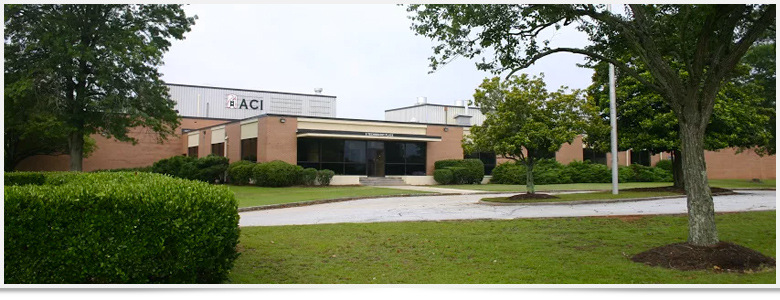
Applied Ceramics brings its customer focus aligned with its materials, tooling and manufacturing expertise to provide breakthrough solutions that change the world. Since 1967, Applied provides value through performance, cost savings, new product development or customized solutions.
Founded in 1967, Applied Ceramics (ACI) originally provided primarily alumina and zirconia kiln furniture and special refractory shapes. The company transformed from a kiln furniture supplier to a global enterprise with product lines stretching across various industries with multiple ventures. This diversity allows Applied Ceramics to service our existing businesses with excellence, while still investing heavily in our R&D group to work on the problems of tomorrow.
Applied Ceramics brings its customer focus aligned with its materials, tooling and manufacturing expertise to provide breakthrough solutions that change the world. Since 1967, Applied provides value through performance, cost savings, new product development or customized solutions.
Founded in 1967, Applied Ceramics (ACI) originally provided primarily alumina and zirconia kiln furniture and special refractory shapes. The company transformed from a kiln furniture supplier to a global enterprise with product lines stretching across various industries with multiple ventures. This diversity allows Applied Ceramics to service our existing businesses with excellence, while still investing heavily in our R&D group to work on the problems of tomorrow.
THROUGH THE YEARS
Applied Ceramics (ACI) begins in Atlanta, GA at the present site. ACI provides alumina kiln furniture to 3M-Alsimag, General Electric, Kemet, AVX and other ceramic companies mostly as saggers and plates.
Diversified into the Electronics industry using Zirconia material. Focuses heavily on Barium Titanate Capacitor Industry and supplies all domestic users within the next two years.
Strategic decision to bring on R&D department head and a focus on innovating new products. Mostly materials development leads to multiple formulas and product knowledge for kiln furniture markets. ACI also begins partnering with larger companies to develop and sell new products.
As a part of the strategy to look for new markets, ACI acquires the base technology for the manufacture of ceramic honeycomb, Versagrid™. While these products were originally intended for the kiln furniture industry, it led to many more opportunities. Currently used in the environmental industry, ceramic honeycomb now supports other industries as well such as molten metal filters, mechanical and/or thermal supports and gas or liquid flow control.
ACI begins manufacturing its Firecat™ ceramic honeycomb and supplying the wood burning stove industry. ACI is the only US manufacturer of ceramic wood burning stove products and produces and services all products in both ceramic and metal.
ACI enterers into a venture with the Hyundai group of Korea to produce ceramic honeycomb for the environmental industry. ACI establishes and staffs a Contract R&D team to assist customers with innovative solutions.
ACI enters into a joint venture with General Motors to produce automotive substrates internationally.
ACI acquires United Emissions Catalyst and its catalytic coating capability.
ACI purchases Fisk Tool and its canning capability.
ACI purchases Amazon Ceramics to expand its product offering and its technical ceramic processing knowledge.
ACI purchases another manufacturing facility with a tool shop, expanded laboratory and test facility in Laurens, SC. ACI also operates a full service tool & die shop and laboratory that supports both locations, its ventures and its respective customers.
ACI absorbs NRG Ceramics under an agreement after private labeling products for NRG in the Aerospace and Defense industries since 1984.
OUR FOCUS
Through our years of operation, we learned that nothing is impossible and there is always a path to success. Our strategy for success is to align ourselves with our customers and their goals so that if they succeed, we will succeed.
More ventures have continued to expand both ACI’s manufacturing capability, materials expertise and its ceramic technology.Since 1993, ACI operates multiple licensing agreements, joint ventures and joint development of high technology with other companies around the globe that cannot be divulged due to non-disclosure agreements in place.
With this focus, we are always willing to try to do the impossible. Because of this creativity and approach to stretch our thinking, we are able to solve many of tomorrow’s problems, today.
ACI Affiliations
ISO 9001:2015 specifies requirements for a quality management system where an organization.
- needs to demonstrate its ability to consistently provide product that meets customer and applicable statutory and regulatory requirements, and
- aims to enhance customer satisfaction through the effective application of the system, including processes for continual improvement of the system and the assurance of conformity to customer and applicable statutory and regulatory requirements.
